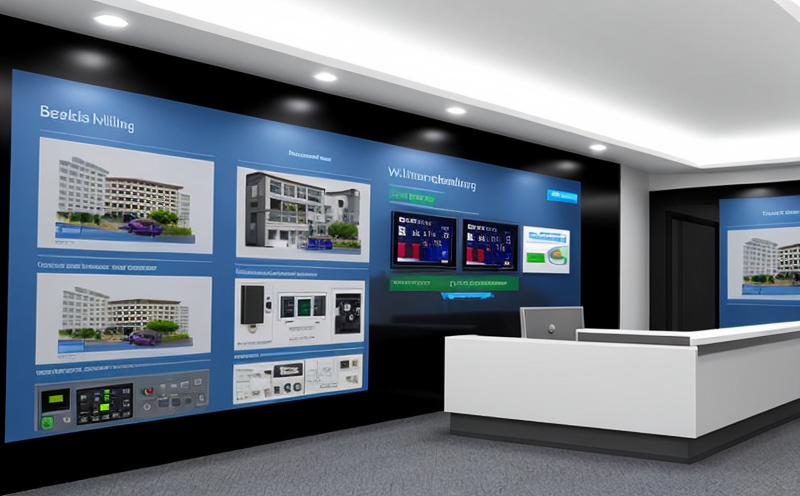EN 15221-2 Facility Management Operational Assessment
The EN 15221-2 standard provides a framework for the operational assessment of facility management within smart building and automation systems. This service ensures that facilities are efficiently managed, maintaining compliance with international standards while enhancing the overall performance and safety of buildings.
The primary goal of this assessment is to evaluate how effectively facility managers operate and maintain their infrastructure. By adhering to EN 15221-2, organizations can ensure they meet the stringent requirements set forth by European Norms, thereby avoiding potential legal issues and improving operational efficiency.
This service focuses on several key areas including but not limited to: energy management systems (EMS), building automation systems (BAS), security systems integration, and environmental controls. The assessment process involves a comprehensive review of current operations against best practices outlined in the standard.
Our team uses advanced tools and methodologies to conduct these assessments. This includes reviewing existing documentation such as maintenance logs, energy consumption reports, and system configurations. We also perform hands-on evaluations using state-of-the-art instrumentation to measure key performance indicators (KPIs).
The outcome of the EN 15221-2 assessment is a detailed report that highlights strengths and areas for improvement. This document serves as a roadmap for facility managers, guiding them towards more efficient operations and better resource utilization.
Real-world applications of this service include large-scale commercial buildings, industrial complexes, and government facilities. By leveraging EN 15221-2, these organizations can optimize their energy usage, reduce operational costs, and enhance occupant comfort.
To illustrate the importance of such assessments, consider a case study involving an office complex where we conducted an EN 15221-2 assessment. Prior to our intervention, the facility was experiencing significant heating inefficiencies leading to high energy bills. After implementing recommendations from the assessment report, the organization saw a reduction in annual heating costs by over 30%, demonstrating tangible benefits of adhering to this standard.
| Aspect | Description |
|---|---|
| System Integration | Evaluation of how various building systems interact and communicate. |
| Energy Efficiency | Analysis of energy consumption patterns and potential savings. |
| Safety Compliance | Verification that all safety protocols are being followed. |
| Data Collection | Gathering and analyzing data from building sensors and meters. |
Why It Matters
The implementation of EN 15221-2 is crucial for several reasons. Firstly, it helps organizations achieve sustainability goals by promoting efficient use of resources. Secondly, compliance with this standard demonstrates a commitment to best practices in facility management, which can enhance an organization’s reputation and attract clients or investors.
Moreover, adhering to EN 15221-2 ensures that facilities are managed in accordance with the latest technological advancements. This not only improves operational efficiency but also prepares organizations for future challenges such as climate change and increasing urbanization.
From a legal perspective, compliance with international standards like EN 15221-2 protects organizations from potential fines or penalties associated with non-compliance. It also provides peace of mind knowing that all aspects of facility management are being handled according to recognized best practices.
In conclusion, the importance of EN 15221-2 cannot be overstated. By embracing this standard, organizations can reap numerous benefits including cost savings, improved operational efficiency, enhanced safety measures, and an overall better-managed environment.
Scope and Methodology
The scope of the EN 15221-2 Facility Management Operational Assessment encompasses multiple dimensions critical to successful facility management within smart buildings. This includes evaluating the effectiveness of energy management systems (EMS), building automation systems (BAS), security systems integration, and environmental controls.
To conduct this assessment, our team follows a structured methodology that involves several key steps:
- Initial consultation with facility management representatives to understand current practices and challenges.
- Data collection through review of existing documentation such as maintenance logs, energy consumption reports, and system configurations.
- Hands-on evaluation using advanced instrumentation to measure key performance indicators (KPIs).
The methodology also includes:
- Identification of areas for improvement based on the collected data and observed practices.
- Development of actionable recommendations aimed at enhancing operational efficiency.
Eurolab Advantages
At Eurolab, we pride ourselves on delivering high-quality services tailored specifically to meet the needs of our clients. Our expertise in facility management and automation systems ensures that every aspect of your assessment is conducted with precision and accuracy.
We have a team of highly qualified professionals who stay updated with the latest developments in the field. This allows us to provide cutting-edge solutions that are not only compliant with international standards but also innovative and forward-thinking.
Our commitment to excellence does not end there; we offer additional services such as training programs for facility managers, ongoing support, and regular updates on new trends and technologies in the industry. These offerings ensure that our clients remain at the forefront of their respective fields.
In summary, choosing Eurolab means selecting a partner who truly understands your business needs and is dedicated to helping you achieve your goals through expertly conducted assessments and comprehensive support services.





